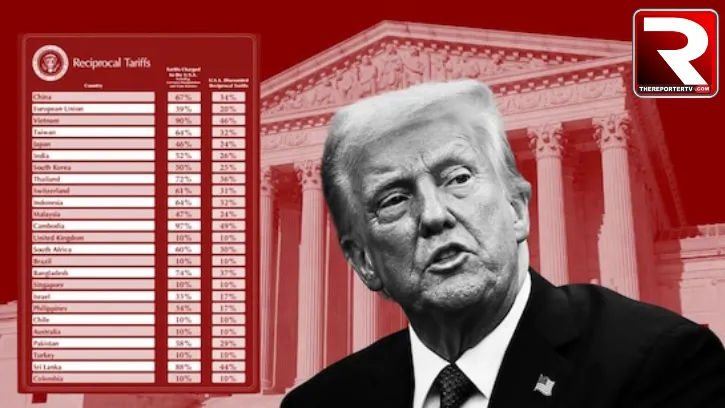New York: A New York appeals court has overturned a civil fraud judgment of more than $500 million plus interest against U.S. President Donald Trump, ruling that the penalty was excessive and violated constitutional protections.
In a detailed 323-page opinion, a five-judge panel from the Appellate Division of the New York Supreme Court upheld the underlying fraud verdict but struck down the hefty financial penalty. The panel found the fine to be disproportionate, stating that it “violates the Eighth Amendment of the United States Constitution,” which prohibits excessive fines.
The lawsuit was originally filed in 2022 by New York Attorney General Letitia James, who accused Trump, along with his sons Donald Trump Jr. and Eric Trump, of inflating the value of their assets to secure favorable terms on bank loans and insurance.
In February 2024, a lower court judge found Trump liable for fraud and ordered him to pay over $500 million, with additional interest bringing the total even higher. The ruling also imposed financial penalties on his two sons, both executives in the Trump Organization.
Following the appeals court decision, Trump celebrated the reversal as a personal and political victory. “I greatly respect the fact that the Court had the courage to throw out this unlawful and disgraceful decision that was hurting business all throughout New York State,” he wrote on his Truth Social platform, calling the outcome a “total victory.”
The Wall Street Journal described the ruling as “a significant legal boost” for Trump, lifting a major financial burden as he continues to navigate a complex web of legal challenges during his presidency. The decision also highlights the polarizing nature of the case, which has drawn scrutiny not only for its legal ramifications but also for its broader political implications.
Attorney General James has not yet indicated whether her office will appeal the ruling to New York’s highest court.
The case remains one of several ongoing legal battles involving Trump, as he simultaneously campaigns for re-election and defends himself in multiple state and federal cases.












